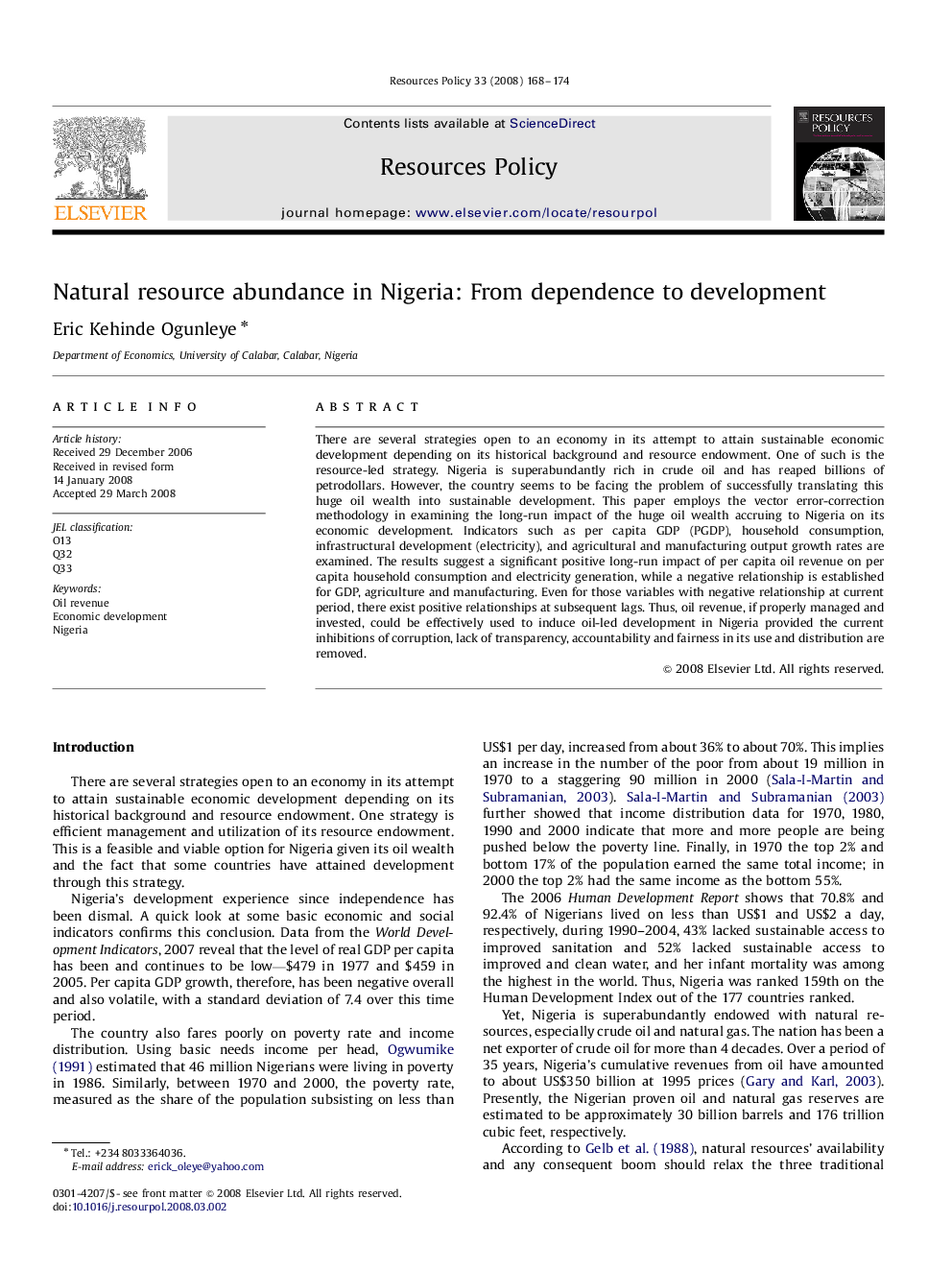| Article ID | Journal | Published Year | Pages | File Type |
|---|---|---|---|---|
| 985819 | Resources Policy | 2008 | 7 Pages |
There are several strategies open to an economy in its attempt to attain sustainable economic development depending on its historical background and resource endowment. One of such is the resource-led strategy. Nigeria is superabundantly rich in crude oil and has reaped billions of petrodollars. However, the country seems to be facing the problem of successfully translating this huge oil wealth into sustainable development. This paper employs the vector error-correction methodology in examining the long-run impact of the huge oil wealth accruing to Nigeria on its economic development. Indicators such as per capita GDP (PGDP), household consumption, infrastructural development (electricity), and agricultural and manufacturing output growth rates are examined. The results suggest a significant positive long-run impact of per capita oil revenue on per capita household consumption and electricity generation, while a negative relationship is established for GDP, agriculture and manufacturing. Even for those variables with negative relationship at current period, there exist positive relationships at subsequent lags. Thus, oil revenue, if properly managed and invested, could be effectively used to induce oil-led development in Nigeria provided the current inhibitions of corruption, lack of transparency, accountability and fairness in its use and distribution are removed.
